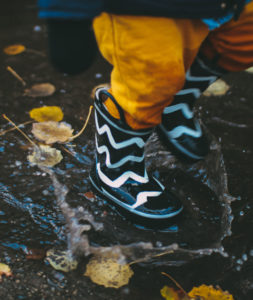Fourth District Court of Appeal Reverses Verdict in Favor of Injured Person in Florida Slip-and-Fall Case

Businesses are expected to exercise reasonable care over their premises, providing inspection, maintenance, repairs, or warnings of any foreign object or substance. If the business fails to provide this to its customers, and this failure results in injuries, the property owner or manager can be held liable for the injuries and expenses incurred as a result. A Fourth District Court of Appeal case reviews the type of proof needed in a premises liability action for a successful result for the injured person in Decision No. 4D16-3413.
The plaintiff slipped on liquid laundry detergent while in a “big box” store. His injury resulted in incurred medical expenses. The injured person described the person in front of him as carrying a “leaking” laundry detergent bottle, which spilled the substance on which he slipped. The injured person filed suit against the store, alleging negligence, and won $250,000 in damages. The trial court judge denied all post-trial motions made by the store, which appealed the verdict in favor of the injured person.
The store argued on appeal that the court should have granted its motion for a directed verdict. The store claimed the injured person failed to sufficiently plead a prima facie case for negligence by using the theory of negligent mode of operation. The injured person countered that the store’s operation was negligent because of its policy of using a high-gloss finish on its floors, resulting in a constant wet-look finish. This persistent wet look makes it increasingly difficult for patrons to be able to see translucent liquids, due to the reflection off the floor caused by the bright lights.
The appellate court applied the premises liability statute, as written in 2009, to ask whether the combination of bright lights and high-gloss finished floors was a dangerous condition resulting in the injured person’s fall. The court looked at the Florida Supreme Court decision in Markowitz v. Helen Homes of Kendall Corp., 826 So. 2d 256 (Fla. 2002) for guidance, which examined a slip and fall caused by a grape in the main area of a nursing home. The court in Markowitz reversed the summary judgment in favor of the nursing home, allowing the case to move forward to answer the question of fact as to whether the nursing home’s mode of operation created a foreseeable risk of spilled food by allowing its residents to carry food back to their respective rooms.
The court also looked at Etheredge v. Walt Disney World Co., 999 So. 2d 669 (Fla.5th DCA 2008), which looked at whether the way guests were allowed to cross the street in a theme park created the condition that led to a teen’s severely injured ankle. The court found that any evidence showing the theme park could have anticipated the dangerous condition that would arise as a result of the way it had guests cross the street should be considered by a finder of fact. Both cases ultimately asked whether the accidents were results of negligence in chosen modes of operation.
The court did not feel the actions of the store led to a question of whether their chosen mode of operation led to the injury. The store’s questioned mode of operation was the combination of bright lighting and high-gloss finished floors. The court felt the spilled laundry detergent was not tied to a specific mode of operation chosen by the store. The appellate court concluded the trial court erred by failing to grant the motion for a directed verdict, and it reversed the award given to the plaintiff.
The Florida premises liability attorneys at Weston & Pape can help you with your slip-and-fall claim. Call today for a free, confidential consultation at 772-266-5555 or 561-299-3999.
More Blog Posts:
Florida District Appellate Court Reviews Future Medical Expenses in Multi-Car Accident Case, Florida Injury Lawyer Blog, November 28, 2016
Federal Circuit Court of Appeal Declines to Find Equitable Tolling in Slip and Fall Case, Florida Injury Lawyer Blog, October 21, 2016
Florida Court of Appeal Allows Injured Motorist to Pursue Additional PIP Payments to Medical Providers, Florida Injury Lawyer Blog, May 18, 2017

 Call Us Today
- It's Free
Call Us Today
- It's Free